Tasty-indian-recipes.com has a pleasure to aware you by offering its nutrients guide and nutritional information that will help to keep the balance of every food item in our life. We even do not known that the food which we are eating on daily basis is enough to provide nutritional requirements to our body? Is it enough to have breakfast, lunch and dinner even without knowing the ratio of vitamins, minerals, carbohydrates and other nutrients? There are a lot of questions in our mind. We are here to answer your questions.
What is the serving quantity of following food items on our daily life:
- 2 cups of vegetables and pulses
- Appx. 4 ounces of meats and poultry
- 2 ounces of any kind of fish or seafood
- may be 1-1/2 cups of melons and pineapples
- 1 cup wheat germ
- 1/2 cup or even less of nuts and seeds
- Rice, barley, etc may be just a cup
- 1 cup of any type of food grain
- 2 cups of fruits
- 8-10 glasses of water
- 2 tbsp butter
- 1-2 eggs
- 1-2 cups yogurt (curd)
- 2-3 tbsp cheese
- 2-3 tbsp cooking oil
As from the above numbers we can assume that our daily food data is divided into different food groups that consists of vegetables, fruits, dairy produces, meat, etc. The serving sizes are based on 2,200 calories a day for the adults.
Following are the names of the several vitamins and minerals that are required by the human body. Amount of these vitamins and mineral and from what food groups these can be acquired is also given:
Vitamin A (5,000 IU)
- Vitamin A is the special requirement for the healthy eyesight, skin and mucous membranes in the respiratory, digestive, and urinary tracts. 100%+ in butternut squash, cantaloupe, carrots, kale, mangoes, red peppers, sweet potatoes. 10% to 50% in apricots, avocados, nectarines and sturgeon.
Vitamin B6 (2 mg)
- Vitamin B6 is very helpful in metabolizing protein and amino acids, it also helps in converting other amino acids into hormones, it also builds red blood cells and antibodies and maintains the central nervous system. From 10% to 50% in avocados, bananas, chicken, Chinese cabbage, green and red peppers, lentils, salmon, soybeans, steak, sweet potatoes, trout, wheat germ, yellow fin tuna and 5% to 10 per% from cauliflower and chickpeas.
Vitamin B12 (6 mg)
- Vitamin B12 is required to produce red blood cells, it not only helps in building and maintaining the myelin a protective sheath found around the body nerves but also synthesizes the DNA. 100% – clams, crab, herring, liver, mackerel, mussels, oysters. 50% to 100 % from salmon, trout and 10% to 50% from eggs, steak and yogurt.
Vitamin C (60 mg)
- Vitamin C is highly helpful in building and maintaining the base for connective tissue, which aids wound healing and effective for healthy blood vessels; scavenge free radicals it also helps in good metabolize certain amino acids; stimulates adrenal function; aids in metabolizing cholesterol. 100%+ – broccoli, Brussels sprouts, cantaloupe, green and red peppers, guava, kale, kiwi, lemons, oranges, papaya, strawberries, last but not least 50% to 100% from blackberries, peas and tomatoes.
Carbohydrates (300 g)
- The body’s main source of energy, it helps in regulating the metabolism of proteins and fats. 10 to 50%, amaranth, apples, black beans, chickpeas, kidney beans, lentils, navy beans, pinto beans, quinoa, sweet potatoes. 5% to 10% from acorn squash, blackberries, butternut squash, corn, parsnips, peas, raspberries and wheat germ.
Copper (2 mg)
- Copper is highly used to manufacture the red blood cells of the body along with collagen, it serves as an aids in the absorption and transport of iron. 100%+ liver, wild oysters and 50 to 100% Alaskan king crab, lobster, squid. 10% to 50% amaranth, Brazil nuts, cashews, chia seeds, chickpeas, clams, hazelnuts, lentils, navy beans, quinoa, oyster mushrooms, sesame seeds, shiitake mushrooms and soybeans.
Calcium (1,000 mg)
- Calcium helps in Building the strong bones and teeth, it plays a role in the transmission of nerve impulses, in blood clotting, and in smooth muscle contraction, hence helping to regulate heart rhythm. Amaranth, cheddar cheese, Chinese cabbage, navy beans, ricotta, sesame seeds, soybeans, Swiss cheese, tofu, yogurt can supply 10 to 50% and 5% to 10% can be from almonds, artichokes and trout.
Vitamin D (400 IU)
- Vitamin D is required for the absorption of calcium and phosphorus. 100%+ catfish, halibut, herring. 50% to 100% from mackerel, oysters, tuna. 10% to 50% in chanterelle, morel, and shiitake mushrooms; eggs; Swiss cheese. 5% to 10 per% Edam and Parmesan cheese.
Vitamin E (20 mg)
- Vitamin E helps in Preventing the damage to cell membranes, it also keeps LDL (bad) cholesterol from oxidizing, that is the first step in the build-up of arterial plaque. 100% + wheat germ oil and 50% to 100% sunflower seeds. 10% to 50% almonds and almond oil, asparagus, avocados, canola (rapeseed) oil, eel, hazelnuts, mangoes, soybeans. 5 % to 10% blueberries, Brazil nuts, broccoli, flounder, lobster, nectarines, papaya.
Folate (400 mg)
- Folate metabolizes protein, it also converts many amino acids, forms the nucleic acids for DNA and RNA. It is highly required to produce red blood cells. Black beans, chickpeas, kidney beans, lentils, liver, navy beans, pinto beans can deliver as much as 50% to 100% of daily needs and 10% to 50% – artichokes, asparagus, avocados, beets, blackberries, Chinese cabbage, green beans, mustard greens, oranges, papaya, sunflower seeds, tofu, wheat germ. 5 to 10% – chia seeds, peanuts, quinoa, salmon.
Fibre (25 g)
- Fibre helps in lowering the cholesterol and for stabilizing blood sugar levels, it also provides the steady source of energy, gives bulk to stools and speeds the passage of waste through the intestines. 50% to 100% black beans, chickpeas, kidney beans, lentils, navy beans, pinto beans. 10% to 50% – apples, artichokes, avocados, blackberries, carrots, corn, guava, parsnips, peanuts, peas, quinoa, raspberries, sunflower seeds, sweet potatoes, wheat germ.
Iron (18 mg)
- Iron is very necessary to form the hemoglobin and to transfer oxygen from the lungs to every cell in the body, used by hemoglobin (like hemoglobin, a compound that carries and releases oxygen) to transport oxygen to muscles and store it there. It is used by several enzymes to produce energy. 50% to 100% clams, soybeans. 10% to 50% chia seeds, kidney beans, lentils, liver, mussels, oyster mushrooms, oysters, pine nuts, pumpkin seeds, quinoa, sesame seeds, shrimp, steak, tofu, wheat germ and 5% to 10% artichokes, green beans, pistachios.
Vitamin K (80 mg)
- Vitamin K is needed for the proper blood clotting. We can get it 100% from broccoli, endive, kale, spinach, Swiss chard, watercress and 50 to 100% from avocados and soybeans, also from 10 to 50% from kiwi fruit.
Manganese (2 mg)
- We require a good amount of Manganese to metabolize glucose and to synthesis cholesterol and fatty acids. It also helps in building the strong bones and for making the urea (a waste product found in urine). 100 %+ amaranth, mussels, pineapple, wheat germ 50 to 100% – blackberries, brown rice, pine nuts, raspberries, soybeans, tofu, walnuts. 10 to 50% asparagus, beets, chestnuts, clams, freshwater bass, kale, lentils, oysters, parsnips, peas, sesame seeds, sweet potatoes.
Magnesium (400 mg)
- Magnesium works as a best Aid for muscle relaxation, it also helps in metabolize carbohydrates and proteins and to activate more than 300 enzymes. 50 to 100% – amaranth. 10 to 50% from almonds, artichokes, avocados, black beans, butternut squash, corn, halibut, mackerel, peas and tofu.
Niacin (20 mg)
- Niacin is highly essential nutrient, required for breaking down the carbohydrates, fats, and proteins. It helps in the forming the red blood cells and steroids, it also keeps the skin, digestive tract and nervous system healthy. 50 to 100% swordfish. 10 to 50% from avocados, barley, brown and white rice, corn, ground beef, lamb, mushrooms, peas, quinoa, salmon, tuna, turkey 5 to 10 per cent asparagus, nectarines and raspberries.
Pantothenic Acid (10 mg)
- Pantheistic Acid is a best support on adrenal glands. It is important to healthy skin and nerves and helps metabolite carbohydrates and fats into energy. We must need to make fatty acids, cholesterol, acetyl choline (a neurotransmitter), and steroids. 50 to 100% liver. 10 to 50 per cent avocados, chicken, eggs, lentils, lobster, mushrooms, salmon, sunflower seeds, wheat germ, yogurt. 5 to 10 per cent amaranth, brown and white rice, corn, herring, Lima beans, quinoa and trout.
Potassium (3,500 mg)
- Potassium Works with sodium to maintain the body’s fluid balance, it also helps to metabolize carbohydrates, to synthesize protein and to transmit nerve impulses. 10 to 50% acorn squash, avocados, bananas, butternut squash, cantaloupe, Chinese cabbage, cod, grouper, halibut, herring, honeydew, lentils, lime beans, oyster mushrooms, papaya, pinto beans, quinoa, soybeans, tomatoes, trout, wheat germ, yogurt. 5 to 10 per cent almonds, kiwi, pork, steak and tofu.
Phosphorus (1,000 mg)
- Phosphorus is required to build the bones and teeth, DNA and RNA, and cells, it is also essential for the metabolism of carbohydrates and fats and to the synthesizing of proteins. 10 to 50% almonds, artichokes, corn, eggs, ham, lentils, navy beans, oyster mushrooms, peas, pumpkin seeds, quinoa, ricotta, salmon, sesame seeds, Swiss cheese, swordfish, tofu, trout, tuna, turkey and yogurt.
Protein (50 g)
- Protein is required to form, maintain and repair the cells of the body, it is also used as building blocks for hormones, enzymes, and antibodies. 50 to 100% soybeans. 10 to 50 % amaranth, black beans, halibut, kidney beans, lentils, lobster, navy beans, oyster mushrooms, Parmesan cheese, peanuts, peas, pine nuts, pork, pumpkin seeds, quinoa, ricotta, salmon, steak, Swiss cheese, swordfish, tofu, trout, tuna, turkey, walnuts, wheat germ and yogurt.
Riboflavin (1.7 mg)
- Riboflavin helps to metabolize carbohydrates and fats into energy, it is also needed for healthy hair, skin, nails, vision, and cell growth. 100 %+ liver. 10 to 50% from almonds, amaranth, avocados, clams, eggs, feta cheese, ham, herring, mackerel, mushrooms, peas, pork, quinoa, ricotta, soybeans, squid, sweet potatoes, wheat germ, wild salmon, yogurt. 5 to 10 per % asparagus, bananas, beechnuts, cheddar cheese, dandelion, lentils, mangoes, raspberries and Swiss cheese.
Selenium (70 mg)
- Selenium helps in Protecting the cell membranes from the free radicals, it also helps in eliminating the certain heavy metals. 100 %+ Brazil nuts. 50 to 100 % couscous, liver, mackerel, shrimp, swordfish, tuna, wheat germ. 10 to 50 % from barley, brown rice, eggs, ground beef, oyster mushrooms, pork, ricotta, Shiite mushrooms, soybeans, sunflower seeds, tofu, yogurt. 5 to 10 % feta and Parmesan cheese.
Thiamine (1.5 mg)
- Thiamine is essential to metabolize glucose into energy and to convert the carbohydrates into fat, it is very important for healthy heart, nerves, and nervous system. 50 to 100% from pork, wheat germ. 10 to 50% from acorn squash, asparagus, avocados, black beans, Brazil nuts, brown and white rice, catfish, chia seeds, corn, lentils, mackerel, navy beans, peas, pine nuts, pinto beans, pistachios, quinoa, salmon, sunflower seeds, trout, yellow fin tuna. 5 to 10 % grapes and pineapple.
Zinc (15 mg)
- Zinc helps the liver detoxify alcohol, bolsters the immune system. It is important to energy production, helps to maintain the healthy skin cells, it also aids the protein digestion, normal insulin activity, DNA and RNA synthesis and the creation of sperm. 100 % oysters. 10 to 50 % crab, black beans, chicken, chickpeas, lamb, lentils, lobster, mussels, peanuts, peas, pork, pumpkin seeds, quinoa, sesame seeds, soybeans, steak, turkey, wheat germ, wild rice, yogurt. 5 to 10% cashews and oyster mushrooms.

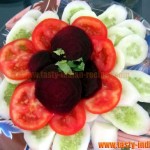
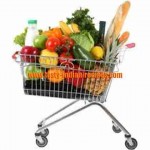

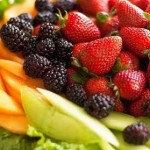
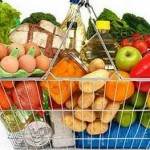
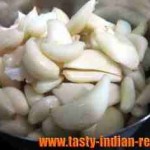
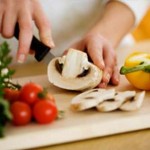
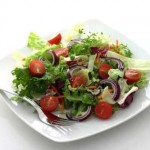

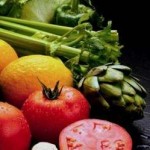
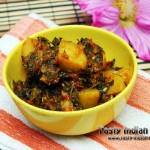
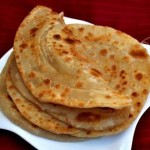
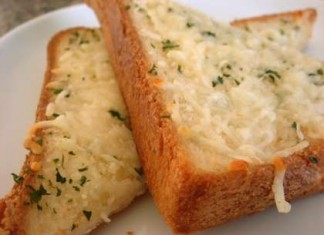



I enjoy your writing style really enjoying this web site and get to know making several new dishes.